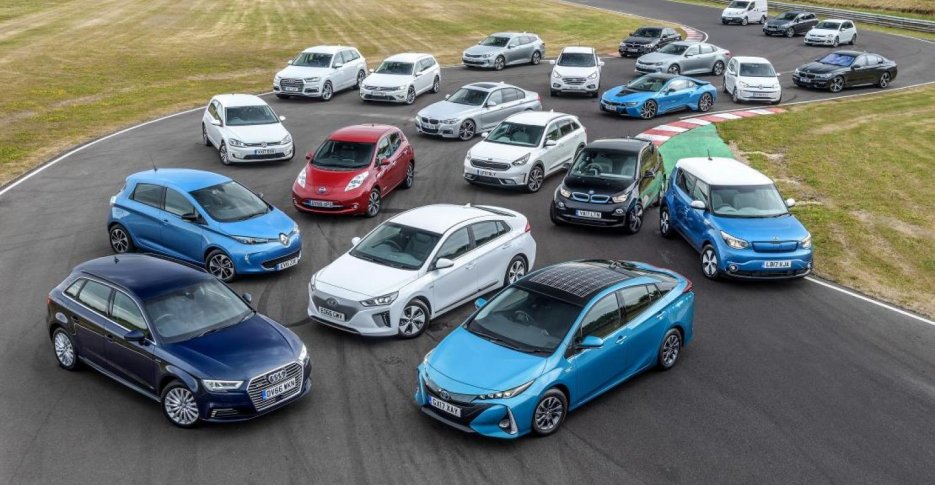| Tags | fleet insurance insurance fleet truck insurance lorry insurance fleet cars truck fleet insurance plant insurance insurance brokers hull electric cars fleet insurance guide show all posts |
How To Switch To An Electric Fleet
How To Switch To An Electric Fleet
There has been a lot of talk about the electric fleet cars in recent months. This has been fuelled by the government’s decision to ban ‘traditionally’ powered vehicles by 2040, leading manufacturers such as Volvo deciding to build nothing but hybrid and electric cars by 2019 and the introduction of the Tesla 3, arguably the most important car in the world. These announcements have caused great excitement in the fleet world – not least in the insurance sector as the number of fleet insurance quotes for electric vehicles has started to rise.

Electric Fleets: The Practicalities
Away from the hype and the promises of clean air, reductions in fleet insurance costs and massive falls in the cost of running fleets (electric ones are said to be as low a 2p per mile versus up to 12p per mile for traditional ones), the one thing that isn’t getting much press is the practicalities of these fleets.
While the crunch time of 2040 is a long way off, the government looks set to tax diesel cars off the road much sooner than that so fleet owners need to start thinking about how they will manage this green revolution now. But how do you start building an alternatively powered fleet? What are the challenges and what are the solutions? In this latest blog from Getaquoteinsurance we look at the problems and the opportunities that this new type of fleet brings so that you can start making the switch now.
Fleet Insurance:
- The Challenge– irrespective of what fuels your vehicles, you are going to need fleet insurance cover. At present cover for electric cars is available but cover for electrically powered fleets can be trickier to get hold of and when you do find it, it can be relatively expensive. Why? Simply because it’s something of an unknown quantity and insurers like to know what they are dealing with. It’s also a relatively small market at the moment – there are only 108,000 electric cars in the UK out of a total of around 26m – so prices will be higher as demand is so much lower.
- The Solution– talk to an experienced fleet insurance provider. In such a specialist market as this it pays to have someone who knows where the best policies are and who can negotiate the best deals for you. Coversure Hull would be happy to help you, so if you’d like some independent advice or even a fleet insurance quote, then please contact us on (01482) 434343.
Charging Electric Fleet Vehicles:
- The Challenge– electric cars need charging and unlike petrol stations charging points are not on every street corner, and if you do run out of juice you can’t simply walk to the nearest pump and fill a can with electricity.
- The Solution– the fact is there are already more electric charging points in the UK than petrol stations. There are some 13,000 charging points – and that number is growing fast – yet there are now only around 8,500 petrol stations, the sector having massively declined in recent years as margins have plummeted. Home charging kits for electric cars are now widely available and can cost as little as £150 and businesses can apply for grants of up to 75% toward the cost of installing a charge point. At present, all that’s required is a little journey planning and as charging points become even more widespread and charging times faster, so these cars will become even more practical.
Electric Fleet Car Range And Cost:
- The Challenge– at present there are just a handful of electric cars on the market and, as every fleet manager knows, the user-chooser fleet driver likes a choice. There’s also the question of range. The Tesla S will go around 250 miles on a single charge which is decent but is only around a 1/3 of the range of standard diesel car. Add to this the extra cost associated with buying or leasing an electric car and it’s not such as an attractive proposition.
- The Solution– in terms of choice of models, this is growing rapidly as all the major manufacturers focus their attention on alternatively fuelled cars. BMW, Kia, Nissan, Renault, Ford and Audi all have models on the market and more are set to follow, and who, given the choice, would choose a Ford Focus over the Tesla Model 3? Yes, they are more expensive to buy but there are grants of up to £4,500 to off-set this cost and as demand grows so costs will fall. Indeed, given their relative engineering simplicity, the fact that they are exempt (for the moment) from vehicle excise duty and their reported levels of improved liability, they could be significantly cheaper to run and cost the driver less in tax. As for range, this is also improving. The Tesla 3 will do more than 200 miles on a charge and at one of their supercharge stations it will give you 170 miles of range on a 30-minute charge. Practically speaking drivers just need to remember to charge overnight, to grab charging time when in meetings or parked up or, if possible, to carry a spare, charged battery in the same way you’d carry a jerry can.
Special Types Fleets:
- The Challenge– those running a truck fleet or a special types fleet may think that electric fleets aren’t for them – whoever heard of an electric truck? Given the distances lorries have to go and the loads they have to carry the batteries would need to be the size of a flatbed and would take days to charge. These will never happen…
- The Solution– ...they already are happening. An electric truck factory opened in Banbury in 2017, and when you think about it electric trucks make perfect sense; charging points will soon be at every motorway service station – places truckers often rest up, plant equipment is only used during the day and only covers short distances on site and factories and manufacturers have been using electric vehicles for years – forklifts – so the infrastructure is already in place.
Electric Fleets? Why Not?
With their savings on everything from fleet insurance, day-to-day running costs, the increased tax pressures on traditionally powered vehicles and their improved practicality, electric fleets look like a good option. The simple truth is that these vehicles are the future: they are coming and all of us need to adapt to that change and start that adaptation now in order to save money, time and disruption.
Like Some More Help?
If you would like to know more about getting fleet insurance cover for an electric fleet or would like some help getting the fleet insurance that’s right for you, then please contact us. You can call us free on 0800 977 6037, email us by clicking here or get a no-obligation fleet insurance quote here.

